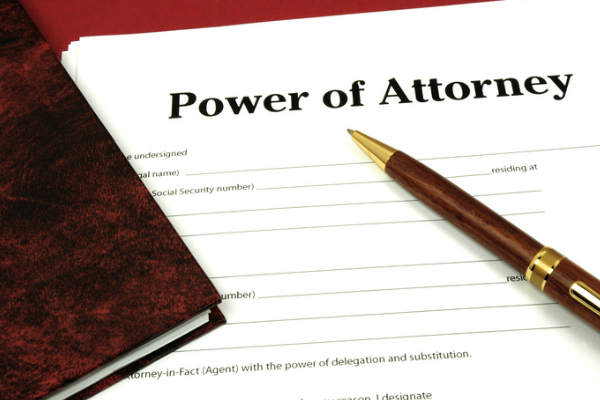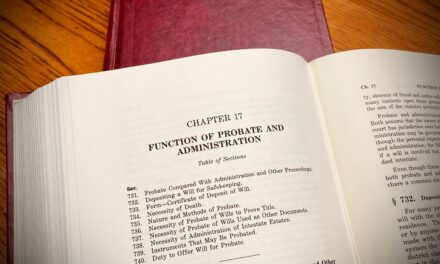What is a Power of Attorney?
The simplest way to think about a power of attorney (“POA” for short), is as being just a delegation of legal rights. For example, I have the “right” to manage my money, choose where I live, choose what medical treatment to receive, etc. My spouse has those same rights – but my spouse, just by virtue of marriage, does not have the right to manage my rights. A lot of married people joke that their spouse “is the boss” and that may be true when discussing paint colors or where to dine out. However, in the context of managing “legal rights”, especially in light of privacy laws and regulations (HIPAA usually immediately comes to mind), my spouse may be “the boss” to me, but she’s not the “boss” to my doctor or my bank.
Only be executing a valid power of attorney – i.e., delegating to her the legal authority to act on my behalf – will she have “legal” authority to speak/act for me. The person I delegate my authority to is referred to in the Kentucky Uniform Power of Attorney Act as my “agent.” I can give my agent as much, or as little, authority as I want. I can even limit the time(s) the authority is valid (such as, only on the first Thursday of the month … which seems silly but gives a general idea).
Do I Need a Power of Attorney?
Most attorneys will say “yes” everyone should have a power of attorney. I often joke with clients that POAs are a bit like auto insurance – everyone needs it, you just do not want to have to use it. A “general” POA is one that essentially delegates all my rights, generally, to a specific person. If I do not have an agent that I have legally appointed in a POA and I later become legally incapacitated, then the only way to gain control over my affairs is through a legal process known as adult guardianship. In Kentucky, a legal disability is not a medical disability (although the two can go hand in hand, they are separate concepts).
A legal disability is measured by functional inabilities, such as inability to make “informed decisions” regarding my physical health and safety. It also includes the inability to make informed decisions as to my financial resources and manage property effectively. Choosing to gamble although I know I can lose my money is not an incapacity. Paying the same electric bill five times because I do not remember previously paying it may very well demonstrate an incapacity. Dementia is a common form of legal incapacity, as are traumatic brain injuries. If I suffer from an incapacity and do not have a valid POA, my spouse can only take control of my affairs through the legal process of adult guardianship.
When presented with the two options – (a) prepare a POA today in the event of disaster tomorrow, or (b) do nothing and risk family/loved ones having to go through a court process to protect you later – preparing the POA seems like a no-brainer.
Contact Allan Dunaway To Discuss Your Estate Plan
A thorough estate plan can protect your family’s assets and record your decisions in the event of incapacitation or death. If you are considering a plan, or require assistance with probate and estate administration, call the Law Office of Allan E. Dunaway PLC, at to schedule a free initial consultation or contact our firm online. You may meet with Allan at our offices in either Louisville, Kentucky, or Jeffersonville, Indiana.





